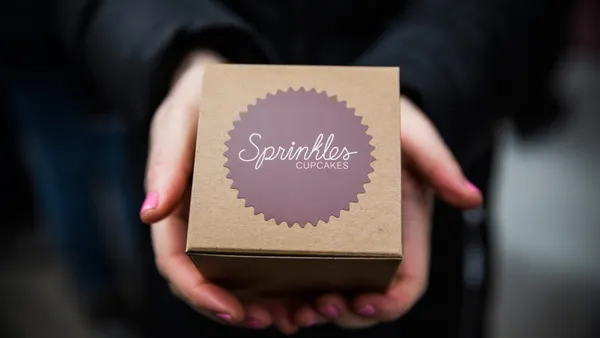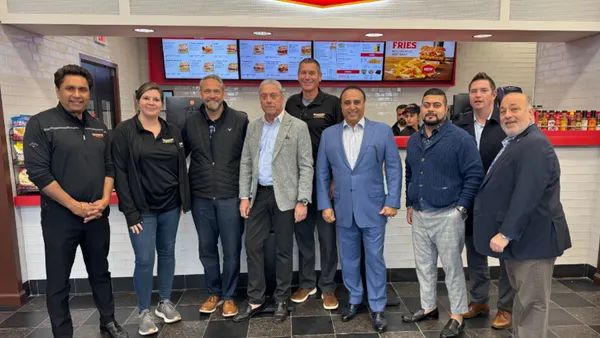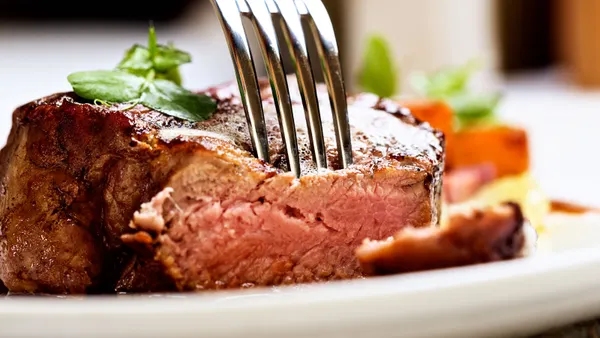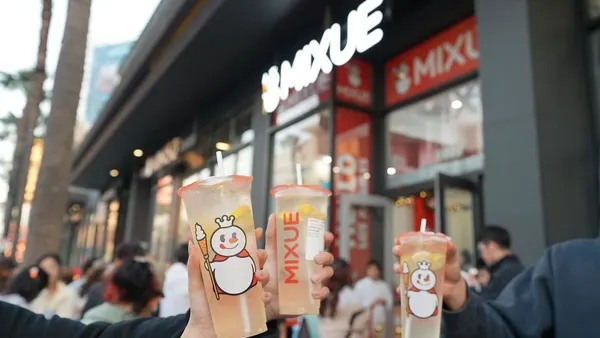Dive Brief:
- The Cheesecake Factory reported Tuesday that it has been impacted by nationwide protests, with 87 Cheesecake Factory restaurants either fully or partially closed during those demonstrations.
- These closings last weekend contributed to a 63% drop in same-store sales for the fiscal second quarter through May 31.
- The chain's dining rooms began reopening during the second week of May and approximately 25% of the company’s restaurants, including 34 Cheesecake Factory units, have reopened with limited capacity. The company reports that the reopened restaurants have averaged approximately 75% of prior-year sales levels.
Dive Insight:
The Cheesecake Factory is citing strength in off-premise sales and building dine-in business for its ability to regain three-fourths of its pre-pandemic sales levels, despite limited capacity in accordance with local mandates. However, with widespread protests, the chain is navigating another sales hit, especially as those only offering takeout and delivery averaging $77,000 per week, or $4 million in sales annually.
Forrester retail analyst Sucharita Kodali told CNBC this second wave of business closures is “a national disaster within a national disaster.”
The Cheesecake Factory isn't alone in closing its locations to comply with curfew orders. Starbucks closed some of its stores Saturday after they were damaged, for example, according to The Wall Street Journal. McDonald’s also closed a handful of stores temporarily. A few Burger King and Popeyes restaurants sustained damaged and closed early in some areas.
The protests have also affected restaurant adjacent companies, like DoorDash, Grubhub, Postmates and Uber Eats, which stopped their service during curfew hours in certain cities.
The paradox for operators in impacted cities is clear — continue hemorrhaging sales as they have been doing during the heart of the pandemic, or open and risk the safety of their employees or non-curfew compliance fines. And, as is the case during the nationwide lockdown from the pandemic, smaller businesses with less cash on hand to burn each week will likely experience the brunt of protest shutdowns. Additional costs are also a factor if those businesses are vandalized on top of being closed; although analysts predict that most businesses will be able to collect insurance on damage.
Perhaps compounding this latest challenge, like the pandemic, is not knowing when the end is. Still, despite these mounting losses, restaurant companies big and small have come out in full support of the protests with statements or actions. Both McDonald’s and Starbucks planned town hall forums for their employees, for instance, while &pizza is giving employees paid time off if they choose to participate in these protests.
Perhaps toughened by the coronavirus shutdowns, even smaller operators have come out in support of the protests. Michelle Brown’s Washington, DC restaurant Teaism was damaged by a fire from the protests. She told The Washington Post that it was heartbreaking, adding, “but this moment is not about us … Any kind of issue like this seems pretty minor. We have been through three months of being closed, we have seen 100,000 people die. I think the protests are great, and I think they are warranted.”








